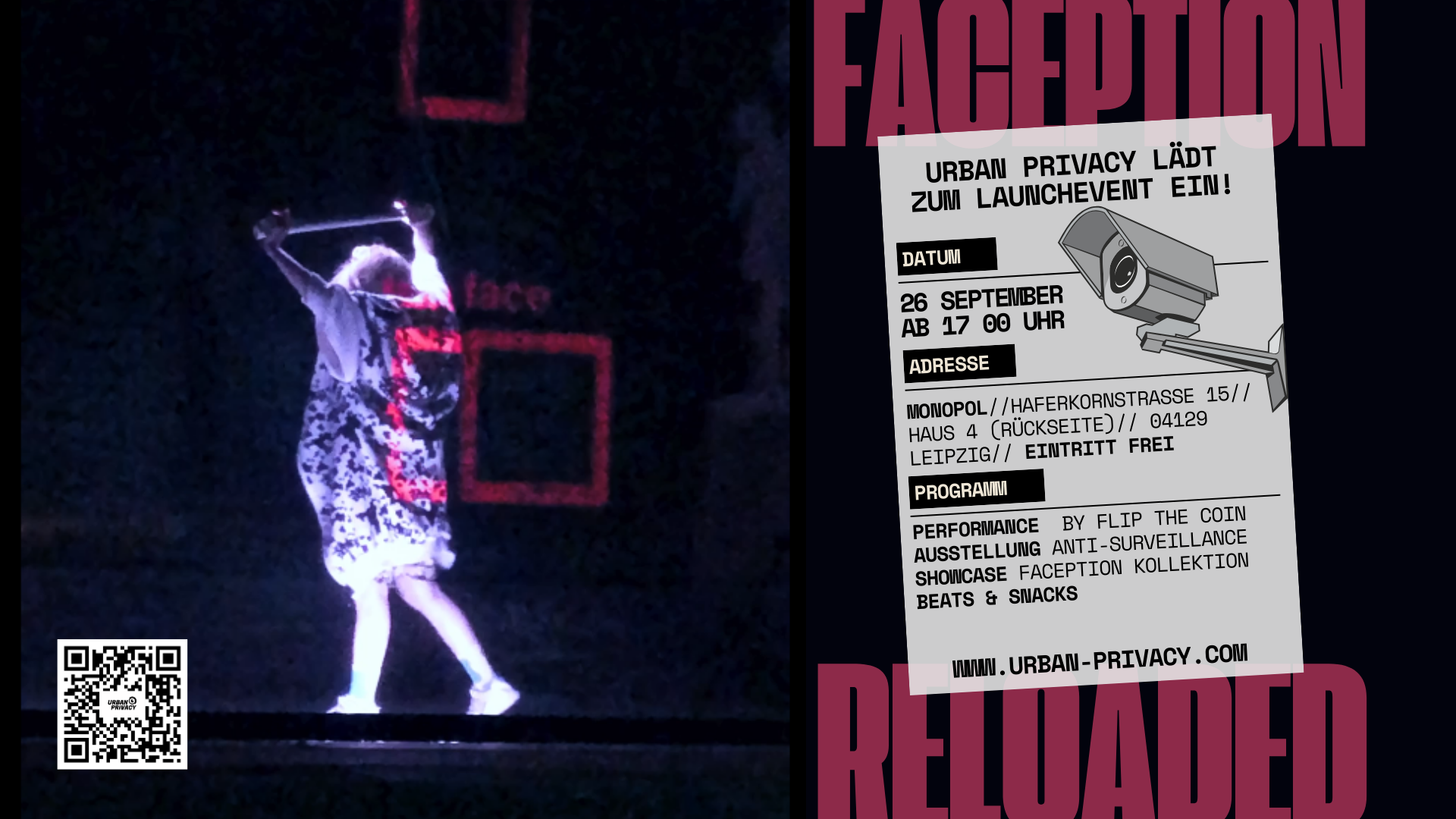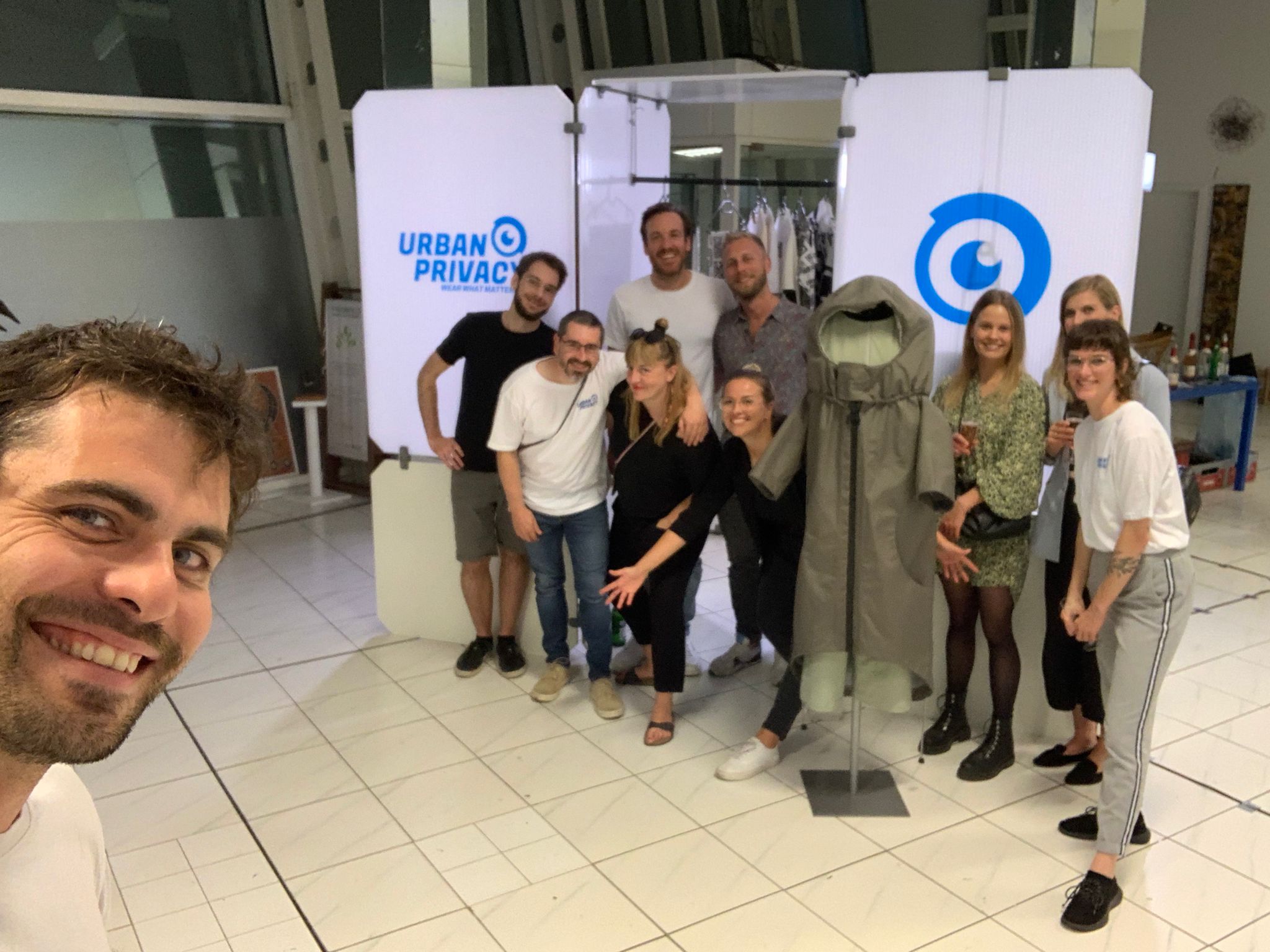Surveillance: Privacy or Security? - Overview of the Debate

As soon as we talk about the topic of video surveillance, two camps immediately form. One side sees the use of this technology as indispensable for the safety of citizens, while the other perceives it as a threat to privacy rights in public spaces. The "13 Fragen" format by "unbubble" explored both perspectives in an episode titled "Video Surveillance: Security over Privacy?" We aim to present the strongest arguments from both the pro and con sides and share our viewpoints. Let's get started!
Participating in the discussion and representing the pro side were Tristan Horx (futurist), Melissa Enders (Women's Union Mainz), and William Bobach (police officer & representative of the German Police Union). Taking the con side were Kristina Hatas (Amnesty International), Schorsch Kamerun (singer and author), and Nils Zurawski (social anthropologist). The conversation was moderated by Jo Schück.
Why do we need video surveillance?
The police union believes it helps to prevent crimes preemptively and facilitates law enforcement. They clarify they do not intend for widespread "video analysis" - a term they use - but rather monitoring only "neuralgic" points (e.g., train stations, note from us). N. Zurawski argued that the preventive argument for video surveillance still lacks evidence, and the number of prevented crimes cannot be quantified.
There is no evidence that video surveillance serves [the goal of prevention] in any way.
Nils Zurawski, Criminologist and Social Anthropologist (3:14)
We would like to emphasize that while we appreciate the police's stance on not wanting to implement widespread surveillance, questions about proportionality arise since it still involves an intrusion into privacy. Initially, everyone is recorded, whether justified or not. Do we know for certain that a significant portion of crimes occur at these "neuralgic" places, as opposed to private settings? So far, we have found no statements on this matter, and even the annual official police crime statistics from the Federal Criminal Police Office (available here: Police Crime Statistics 2022) do not provide specific information on this.
Protection against terrorism
Another point: Prevention assumes crimes are planned and that potential perpetrators may reconsider upon seeing cameras. However, not all crimes are premeditated. Acts of impulse, possibly under the influence of drugs (yes, including alcohol), are unlikely to be deterred by video surveillance. When it comes to more diffuse threats like terrorism, the belief that filming mosques, synagogues, or train stations comprehensively can prevent acts motivated by religious fanaticism or political reasons is unfounded. At best, it is irrelevant to the perpetrators; at worst, it may even incite them. This argument is not just our own but is also put forth by the Federal Commissioner for Data Protection (read here: Statement by the Federal Commissioner for Data Protection on Video Surveillance).
Caution vs. foresight
The discussion shifts to whether video surveillance is seen more as a danger or as having potential. K. Hatas (Amnesty International) responds that increasingly invasive surveillance restricts the exercise of our human rights. M. Enders (Women's Union), on the other hand, argues that this applies only to autocratic systems, not functioning democracies like Germany. Furthermore, there should be public places where everyone can feel safe, and facial recognition can support police work there.
Surveillance becomes more invasive, for example, through the use of [...] artificial intelligence. This means that every person and every movement becomes traceable. This means there is no anonymity left in public space.
Kristina Hatas, Amnesty International Germany (5:09)
We believe the issue with surveillance lies in the fact that it potentially facilitates the transition of previously democratic (or nearly democratic) systems towards autocracies once such systems are established. Increased surveillance does not automatically make a society more resilient but may have a potentially reinforcing effect that could work in the opposite direction. Ultimately, the lawful use of such means depends on the legitimacy of those who control them. Even in our democracy, all threads ultimately come together with the government. And without wanting to imply any malice from the outset, laws such as data retention, which were recently overturned by the ECJ, suggest that the development of such far-reaching decisions often lacks foresight.
Costs and benefits
M. Enders is then directly asked why she, or rather the Women's Union, advocates for video surveillance. She states that it is primarily about vulnerable groups such as women and children, for whom safe spaces should be created in public. K. Hatas finds this argument understandable but wishes for other measures, such as better lighting or contact persons who can de-escalate situations. Enders responds that video surveillance paired with facial recognition probably represents the best cost-benefit factor and thus is the most economical solution.
With women and children, we simply have an extremely vulnerable group that is often forgotten in public events.
Melissa Enders, Women's Union of the CDU (6:32)
Cameras, your friend and helper
We have a problem with the cost-benefit analysis for various reasons. On the one hand, we cannot understand how the cost-benefit factor is supposed to be determined if there is no evidence of a positive effect of video surveillance. Especially when invoking the prevention argument, which is not quantifiable in principle. On the other hand, a central "power," personified only by anonymous technology, does not represent an adequate point of contact or interface between state and population. It may even risk deepening this gap through alienation. The state is then represented not by individuals but only by technology. The emotionless camera on the lamppost also offers no protection if a crime actually occurs. At most, it can support the investigation of the perpetrators.
Is perceived insecurity justified?
Next, the question arises whether people feel insecure rightly. T. Horx (futurist) points out statistically that Germany is as safe as ever. He also suggests that many people voluntarily disclose a lot of information on the internet but then complain about cameras in public. At the same time, he refers to London, one of the major cities with the most video surveillance, arguing that an "Orwellian dystopia" has not developed there either, and crime remains a problem.
You can never really create a feeling of security. Because the safer it is, paradoxically, the more insecure we often feel.
Tristan Horx, Trend and Future Researcher (9:56)
Living in a dystopia
First of all, the problem of cognitive dissonance is indeed widespread. People drink fair-trade coffee from recycling cups while driving alone to work in an SUV. One uses a VPN connection to secure a discount code with an email address. This is often the case, but it doesn't have to be.
Horx's argument that London is not a dystopia despite video surveillance sounds positive on the surface. The real question, however, is what has it actually achieved? After all, it involves intrusions into privacy! The fact that things have not gotten worse cannot be a justification for video surveillance. Horx points out that crime remains a problem, so where is the advantage here?
More video surveillance, less police?
Following N. Zurawski's remark that the substantive coupling of the topics of security, crime, fear, and surveillance is very unfortunate and mobilizes fears, the question "Are people's fears being played with?" is directed at W. Bobach again. He responds again that they actually do not want surveillance and could abolish or minimize video surveillance if there were enough police officers





Comments